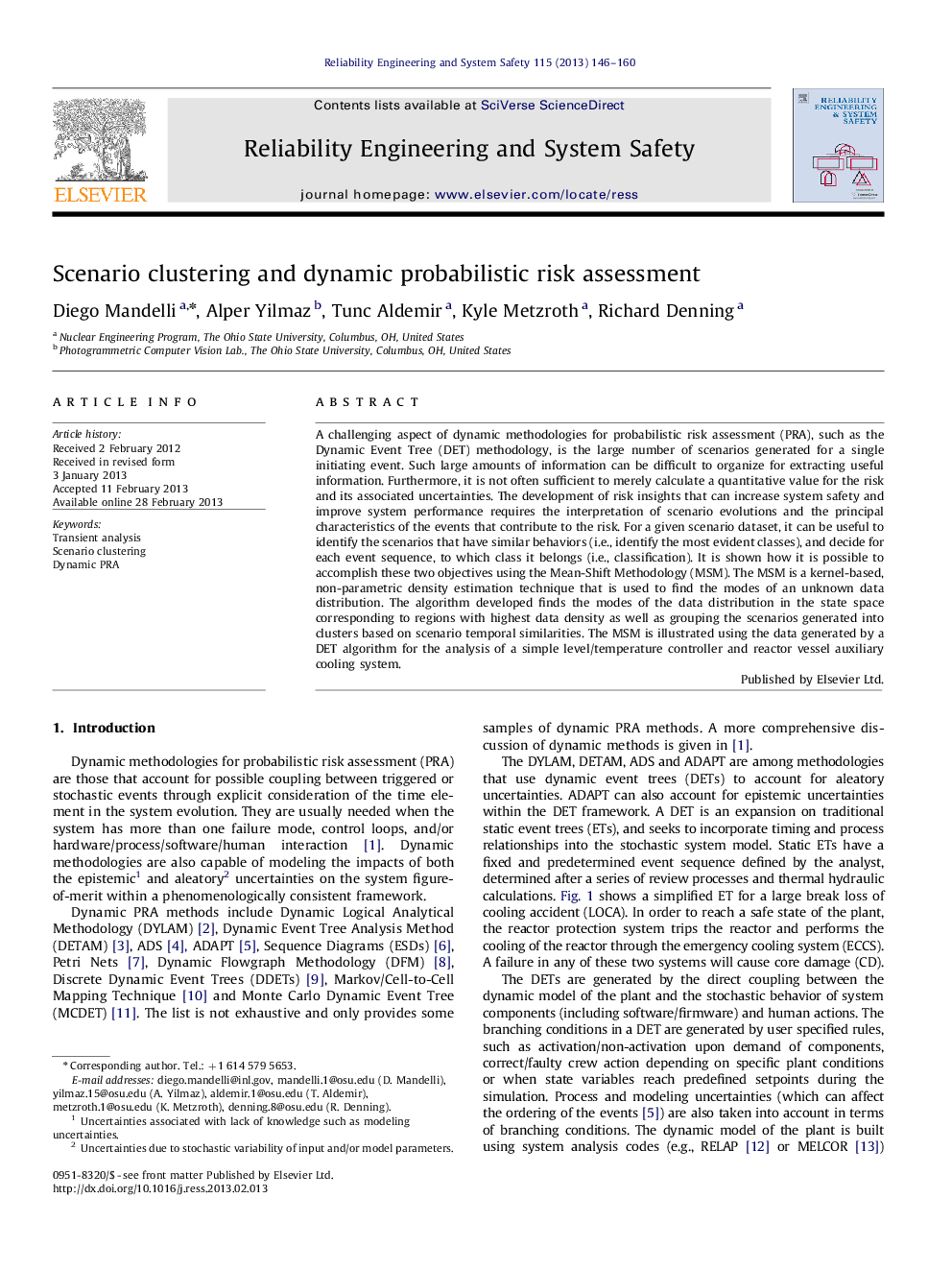| کد مقاله | کد نشریه | سال انتشار | مقاله انگلیسی | نسخه تمام متن |
|---|---|---|---|---|
| 7195915 | 1468255 | 2013 | 15 صفحه PDF | دانلود رایگان |
عنوان انگلیسی مقاله ISI
Scenario clustering and dynamic probabilistic risk assessment
ترجمه فارسی عنوان
خوشه بندی سناریو و ارزیابی ریسک احتمالی
دانلود مقاله + سفارش ترجمه
دانلود مقاله ISI انگلیسی
رایگان برای ایرانیان
موضوعات مرتبط
مهندسی و علوم پایه
سایر رشته های مهندسی
مهندسی مکانیک
چکیده انگلیسی
A challenging aspect of dynamic methodologies for probabilistic risk assessment (PRA), such as the Dynamic Event Tree (DET) methodology, is the large number of scenarios generated for a single initiating event. Such large amounts of information can be difficult to organize for extracting useful information. Furthermore, it is not often sufficient to merely calculate a quantitative value for the risk and its associated uncertainties. The development of risk insights that can increase system safety and improve system performance requires the interpretation of scenario evolutions and the principal characteristics of the events that contribute to the risk. For a given scenario dataset, it can be useful to identify the scenarios that have similar behaviors (i.e., identify the most evident classes), and decide for each event sequence, to which class it belongs (i.e., classification). It is shown how it is possible to accomplish these two objectives using the Mean-Shift Methodology (MSM). The MSM is a kernel-based, non-parametric density estimation technique that is used to find the modes of an unknown data distribution. The algorithm developed finds the modes of the data distribution in the state space corresponding to regions with highest data density as well as grouping the scenarios generated into clusters based on scenario temporal similarities. The MSM is illustrated using the data generated by a DET algorithm for the analysis of a simple level/temperature controller and reactor vessel auxiliary cooling system.
ناشر
Database: Elsevier - ScienceDirect (ساینس دایرکت)
Journal: Reliability Engineering & System Safety - Volume 115, July 2013, Pages 146-160
Journal: Reliability Engineering & System Safety - Volume 115, July 2013, Pages 146-160
نویسندگان
Diego Mandelli, Alper Yilmaz, Tunc Aldemir, Kyle Metzroth, Richard Denning,
